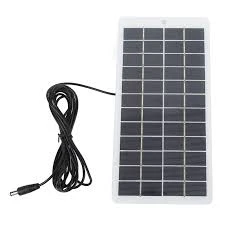Exploring the Benefits and Features of 48V Hybrid Inverters for Renewable Energy Systems
The Rise of Hybrid Inverters Powering the Future with 48V Technology
In today’s world where energy consumption is continually on the rise, the quest for efficient, flexible, and sustainable power solutions has led to the advent of hybrid inverters. A hybrid inverter, particularly those operating at 48 volts, has become increasingly popular among households and businesses seeking to manage their energy needs more effectively.
What is a Hybrid Inverter?
A hybrid inverter is a sophisticated device that combines the functionalities of a traditional inverter and a battery inverter. It enables the integration of renewable energy sources, such as solar panels, with energy storage systems, allowing for optimal use of energy resources. With the ability to manage energy from various sources—grid power, solar power, and batteries—hybrid inverters provide a seamless power supply to meet fluctuating energy demands.
The Significance of 48V Systems
The 48V configuration stands out for several reasons. First, it strikes a perfect balance between efficiency and safety. Higher voltage systems can often lead to increased energy losses and potential safety hazards due to the higher currents they require to transfer equivalent power. A 48V system minimizes these risks while still delivering adequate power capacity for most residential and light commercial applications.
Moreover, 48V systems have gained traction in recent years due to advancements in battery technology. Lithium-ion batteries, commonly used in conjunction with these inverters, provide high energy density and longer lifespans. The synergy between 48V hybrid inverters and advanced battery systems allows users to store energy generated during the day for use during the night or in times of power outages, enhancing energy independence.
hybrid inverter 48v

Benefits of Hybrid Inverters
1. Improved Energy Management Hybrid inverters facilitate smart energy management by allowing users to utilize solar power during the day, store excess energy in batteries, and draw from the grid only when necessary. This capability not only optimizes energy usage but also helps in reducing electricity bills.
2. Grid Independence For many homeowners, the ability to generate and store their energy means less reliance on the grid. In areas with unstable power supply or frequent outages, hybrid inverters can ensure a constant power supply, enhancing energy security.
3. Environmental Sustainability Utilizing renewable energy resources like solar power contributes significantly to reducing carbon footprints. By integrating hybrid inverters, users can significantly decrease their dependence on fossil fuels.
4. Flexibility and Scalability Hybrid inverter systems can be tailored to the unique energy needs of a household or business. Whether needing to meet basic power requirements or accommodating future expansions, these systems can easily adapt to changes in energy consumption patterns.
Conclusion
As the world moves towards a more sustainable energy future, the demand for hybrid inverters, particularly those operating at 48 volts, will only increase. With benefits that extend beyond mere electricity supply—contributing to energy independence, cost savings, and environmental stewardship—hybrid inverters represent a pivotal shift in how we approach energy management. Their versatility and efficiency make them a worthwhile investment for anyone looking to harness the power of renewable energy while ensuring reliable electricity for their needs. As technology continues to evolve, hybrid inverters will play a crucial role in shaping a sustainable and resilient energy landscape for generations to come.
-
Unlocking Energy Freedom with the Off Grid Solar InverterNewsJun.06,2025
-
Unlock More Solar Power with a High-Efficiency Bifacial Solar PanelNewsJun.06,2025
-
Power Your Future with High-Efficiency Monocrystalline Solar PanelsNewsJun.06,2025
-
Next-Gen Solar Power Starts with Micro Solar InvertersNewsJun.06,2025
-
Harnessing Peak Efficiency with the On Grid Solar InverterNewsJun.06,2025
-
Discover Unmatched Efficiency with the Latest String Solar InverterNewsJun.06,2025







